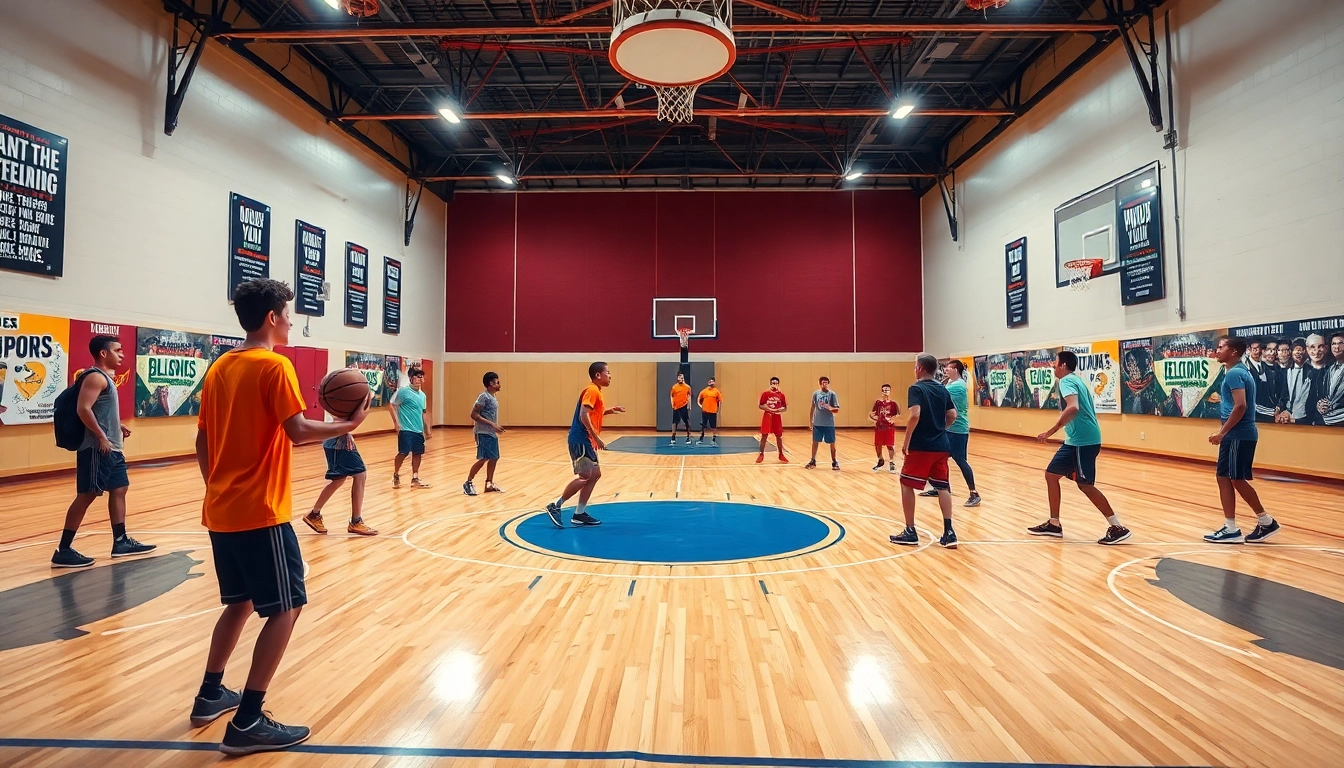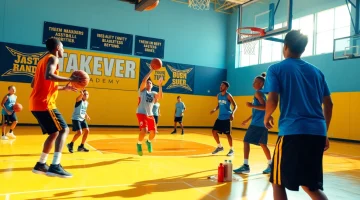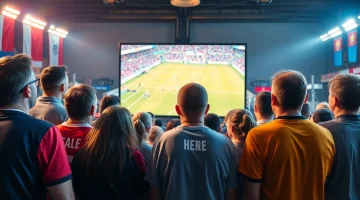
Find the Best Basketball Training Programs Near Me for Skill Development
Introduction to Basketball Training Programs Near Me
If you’re passionate about basketball, whether as a player seeking to refine your skills or as a parent looking for a training program for your child, the right basketball training programs can make all the difference. With a plethora of options globally, finding local programs is crucial. This guide is designed to help you explore quality local training opportunities and maximize your basketball development. Programs can range from camps that foster youth skills to specialized coaching aimed at enhancing performance. For those specifically searching for basketball training programs near me, this article will provide insight into how to embark on this journey effectively.
Understanding the Importance of Local Training
Locating basketball training programs close to home comes with numerous advantages. First and foremost, it allows for consistent attendance in programs that can significantly elevate your game or your child’s game over time. Local training offers flexibility in scheduling, making it easier to fit into busy calendars. Furthermore, being part of a community-focused program facilitates building relationships with coaches and fellow athletes, which can enhance motivation and create a supportive environment. Additionally, many local programs are tailored specifically to cater to the needs of players in the immediate area, considering local competition levels and available facilities.
Key Features of Effective Training Programs
When searching for basketball training programs, it’s essential to evaluate what makes a program effective. Key features include:
- Qualified Coaches: Programs with experienced coaches who have a track record in developing athletes tend to yield better results.
- Structured Curriculum: A clear, goal-oriented training plan that progresses from fundamental skills to advanced techniques is vital.
- Facilities: Access to proper courts, training equipment, and fitness amenities can greatly enhance the training experience.
- Individualized Attention: Programs that offer smaller group sizes or one-on-one coaching allow for personalized feedback and development.
- Reputation: Checking reviews and testimonials from past participants can provide insights into the effectiveness of a program.
How to Get Started with Your Basketball Training Journey
Starting your basketball training journey can be overwhelming, especially with so many programs available. Here’s a step-by-step approach:
- Research: Begin by conducting research on local basketball training options. Online search engines, social media groups, and local community boards can provide valuable leads.
- Visit Facilities: If possible, visit local basketball training facilities to get a feel for the environment. Speak with coaches and ask questions about their training methodologies.
- Trial Classes: Many programs offer trial classes or introductory sessions. These opportunities can help you determine if the program fits your needs.
- Set Goals: Define what you hope to achieve from training. Are you looking to improve specific skills, fitness, teamwork, or game strategy? Clear goals help tailor your training experience.
- Enroll: Once you’ve found the right program, enroll and commit to the schedule provided. Consistency is key to improvement.
Types of Basketball Training Programs Available
Camps for All Ages and Skill Levels
Basketball camps are excellent for players of all ages, from young beginners to experienced athletes. These camps typically focus on enhancing foundational skills while also incorporating competitive play. Many camps are seasonal, often held during summer break, and serve as a way to engage young athletes during their time off from school.
In addition to skill development, these camps often foster teamwork and camaraderie among participants. Look for camps that offer a comprehensive approach, incorporating aspects like speed and agility training, shooting techniques, and defensive strategies. Programs such as Hoop Dreams provide unmatched youth basketball training and can serve as an excellent model for what to look for.
Private Training Sessions with Experienced Coaches
For those seeking a more focused approach, private training sessions with experienced coaches can significantly benefit aspiring athletes. These sessions allow for tailored training geared towards specific strengths and weaknesses. Coaches can provide immediate feedback, which is crucial for skill improvement. Whether it’s perfecting a jump shot or enhancing defensive footwork, individual training gives athletes the edge they need.
Moreover, many coaches offer flexibility in scheduling, making it easy to find times that fit into busy lifestyles. For instance, programs like M14Hoops offer top-rated private training instruction that can help develop individual skills and elevate performance to new heights.
Team Training & Development Programs
Team training programs focus on group dynamics, facilitating development in teamwork, strategy, and communication on the court. These programs are essential for school teams, AAU squads, or recreational leagues looking to enhance their overall performance. Coaches often blend skill-specific drills with scrimmages to teach players how to apply learned skills in a competitive environment.
It’s vital to seek out programs that emphasize building team chemistry and recognizing individual roles within a team context, as this is crucial to success in competitive play. Evaluating the focus of the training sessions and the experience of coaches in working with teams can help ensure the program’s effectiveness.
Finding the Right Program for Your Needs
Evaluating the Quality of Local Training Facilities
When assessing basketball training programs, the quality of the facility is paramount. Well-maintained courts, adequate space for drills and training sessions, and available training equipment are all critical factors. Check for hygiene standards, accessibility, and whether the facility is equipped with amenities like restrooms and waiting areas.
Potential participants should also inquire about the availability of any additional training tools such as shooting machines, strength training equipment, and analysis technology that could enhance the training experience.
Comparing Coaching Styles and Approaches
Different coaches have various methods and philosophies regarding skill development and coaching strategies. When comparing possible training programs, consider what aligns best with your learning style. Some coaches may emphasize drill repetition for skill mastery, while others might focus on game scenarios to enhance understanding of strategy and decision-making.
It’s often helpful to schedule a meeting or introductory session with potential coaches, allowing you to gauge their communication style and approach to coaching. Additionally, observing a session can provide insights into how they interact with athletes and facilitate learning.
Assessing Program Costs and Commitment Levels
Cost is a significant factor for many when choosing a basketball training program. Understanding the pricing structure—whether it be per session, monthly, or for a full program—is critical. Balancing cost with the expected outcomes is essential; remember, the most expensive option isn’t necessarily the best.
Moreover, consider the commitment level required. Some programs may demand strict attendance or participation in competitions, while others might be more flexible. Ensure that the program’s requirements align with personal availability and aspirations.
Maximizing Your Training Experience
Setting Personal Goals for Development
To get the most out of any training program, it is critical to set personal development goals. Goals should be SMART: Specific, Measurable, Achievable, Relevant, and Time-bound. For instance, an example goal could be to improve free-throw shooting accuracy by 15% within two months of training.
Setting clear goals not only provides focus but also serves as motivation throughout the training process. Regularly reviewing and adjusting these goals can help accommodate progress and ensure consistent development.
Tracking Progress and Adjusting Training Plans
Tracking your training progress is vital for continual improvement. Utilize journals or digital tools to document practice sessions, skills learned, and areas needing improvement. Regular assessments, such as measuring shooting percentage or fitness levels, can provide tangible evidence of progress and areas for further work.
Engage with your coach to make necessary adjustments to your training plan, ensuring it evolves alongside your development. Flexibility in training ensures that it remains focused on your current needs and goals while also promoting growth.
Incorporating Regular Feedback and Evaluation
Regular and constructive feedback is essential for athletes to refine their skills effectively. Coaches play a vital role in providing this feedback, but self-assessment is equally important. After each training session, take time to reflect on what you learned, what went well, and what you need to work on.
Creating an open line of communication with coaches to seek feedback and guidance can foster a more supportive and productive training environment. This dialogue helps address any concerns or questions, allowing for targeted development.
Success Stories and Testimonials
Real-Life Examples of Skills Improvement
Success stories can serve as powerful motivation and demonstrate the transformative power of dedicated training. Many athletes have significantly improved their skills after committing to local training programs. For instance, previous participants in programs like Evolution Basketball Training often share their journeys showcasing improvements in performance and gameplay.
Such testimonials highlight the importance of consistent practice, personalized coaching, and the supportive community surrounding local training programs.
The Impact of Quality Training on Young Athletes
The benefits of quality basketball training extend far beyond improved gameplay. Young athletes often experience boosts in self-esteem, teamwork, and discipline through participation in training programs. Coaches who focus on holistic development can foster valuable life skills that benefit students both on and off the court.
Moreover, participating in such programs prepares athletes for competitive environments, teaching them how to handle pressure, work collaboratively, and set and achieve personal goals.
Ways to Share Your Training Journey with the Community
Engaging with the community can enhance your training experience and motivate others. Share your training experiences, successes, and challenges through social media or local sporting events. Participating in community events or volunteer coaching can also foster deeper connections within the basketball community.
Encouraging others on a similar journey not only helps build a support network but also contributes to the growth of basketball culture within your region, potentially leading to more robust and inclusive training programs in your area.

